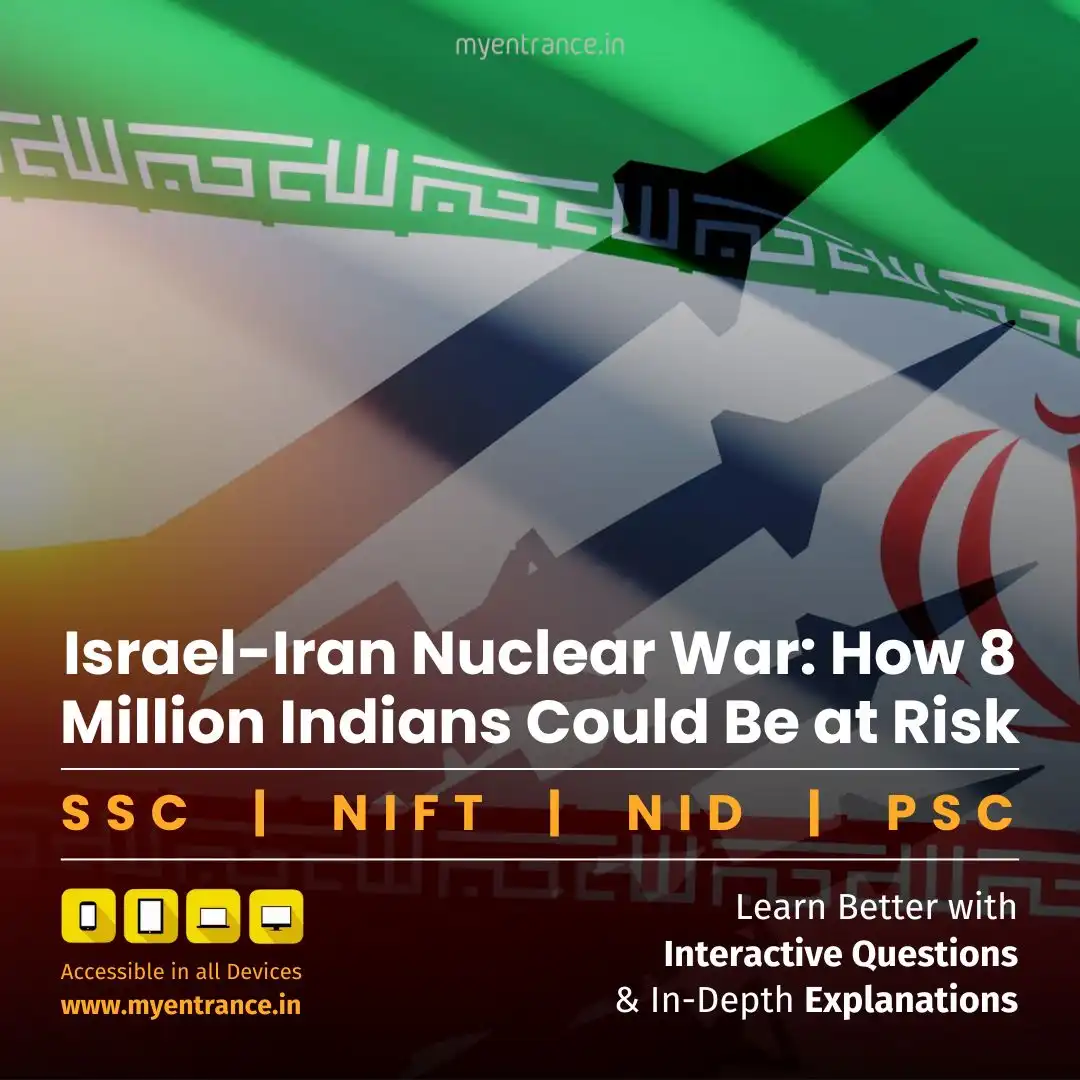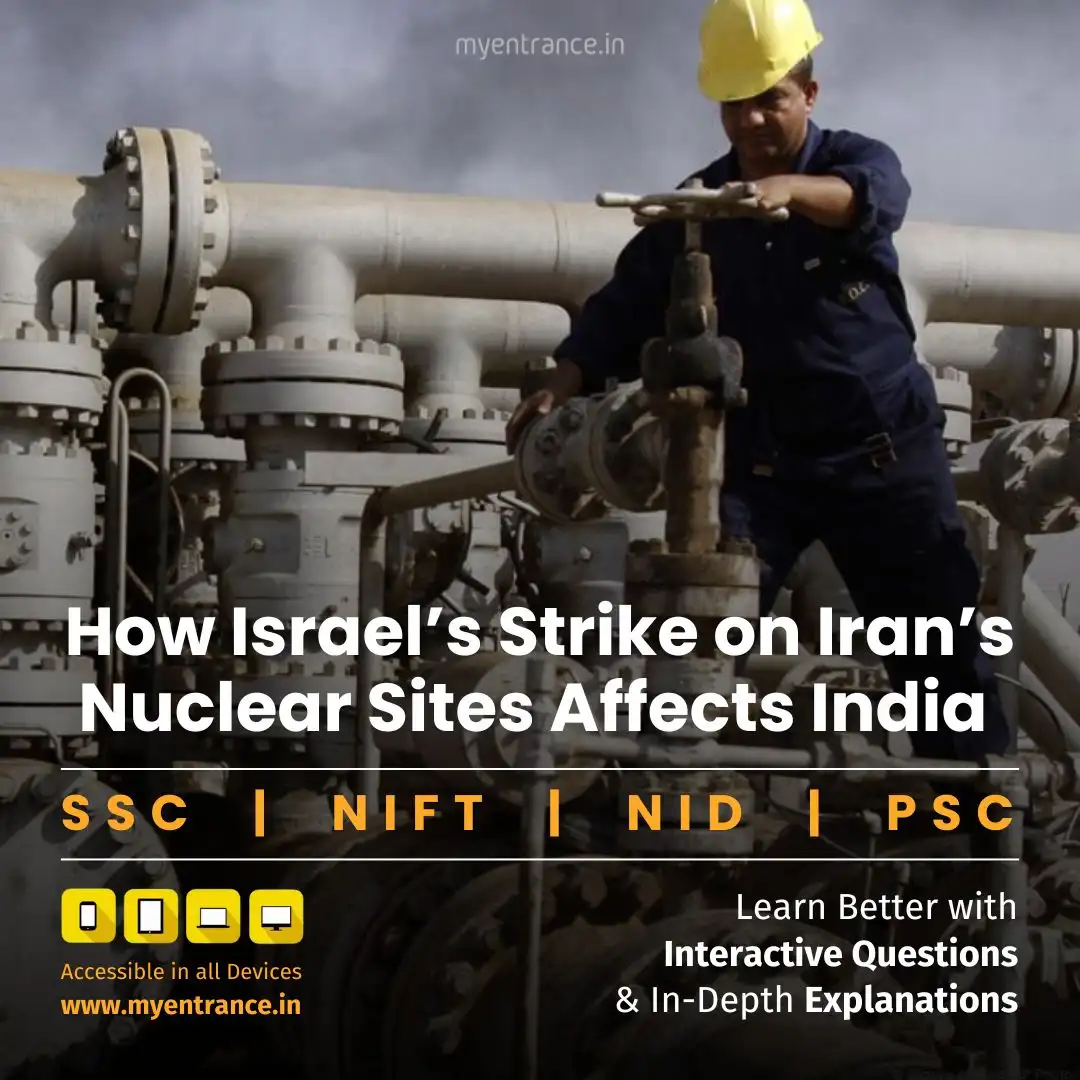Select Language
Oil, Jobs, and Diplomacy: Why India Fears an Israel-Iran Escalation
A nuclear confrontation between Israel and Iran would send shockwaves far beyond the Middle East, directly affecting India’s economy, energy security, and millions of its citizens working in the Gulf. The consequences could be catastrophic—here’s why India must prepare.
Why India Should Be Worried About an Israel-Iran Nuclear War
1. India’s Strategic Ties with Both Israel and Iran Make This Conflict Personal
India has deep-rooted relationships with both nations, making neutrality difficult.
India-Israel Defense & Tech Partnership
Israel is among India’s top arms suppliers, providing advanced drones, missile systems, and cybersecurity tech.
PM Modi’s 2017 Israel visit strengthened ties, boosting cooperation in agriculture, water management, and counter-terrorism.
India-Iran Energy & Geopolitical Links
Iran was once a key oil supplier to India before U.S. sanctions disrupted trade.
The Chabahar Port project remains crucial for India’s access to Afghanistan and Central Asia.
Balancing these alliances will be a diplomatic tightrope if war erupts.
2. A Nuclear Strike Could Have Global Economic Consequences
Oil Prices May Skyrocket
India imports 80% of its oil, much from the Gulf. A war could disrupt supplies, inflating fuel prices and triggering inflation.
Stock Market Chaos Likely
Indian markets (Sensex, Nifty) would react violently to Middle East instability, particularly impacting aviation, shipping, and energy stocks.
8 Million Indian Workers in the Gulf at Risk
If conflict escalates, mass evacuations may be needed, similar to the 1990 Gulf War.
Remittances ($125 billion in 2023) could plummet, hurting families and local economies.
3. Radiation Risks: Could Nuclear Fallout Reach India?
While direct radiation is unlikely, past disasters prove contamination can travel:
Chernobyl’s radioactive clouds reached Sweden (1,000 km away).
If winds carry nuclear particles eastward, trace radiation could affect India.
4. Trade & Supply Chain Disruptions
The Strait of Hormuz, a critical shipping route, could be blocked, delaying imports/exports.
Essential goods, electronics, and fuel shipments may face severe delays.
5. India’s Diplomatic Dilemma
Supporting Israel risks angering Iran and Gulf nations hosting Indian workers.
Backing Iran could strain U.S. and Israel relations, harming defense deals.
Silence may be seen as weakness—India must push for de-escalation while preparing for worst-case scenarios.
6. Lessons from History: Nuclear War Spares No One
Hiroshima & Nagasaki’s effects lasted decades, causing cancers and birth defects.
Chernobyl remains uninhabitable—nuclear disasters don’t respect borders.
Sample Questions & Answers (FAQs)
Q1: How would an Israel-Iran war affect Indian oil prices?
A: India relies heavily on Gulf oil. Any conflict could disrupt supplies, causing fuel prices to surge and worsening inflation.
Q2: Are Indians in the Gulf in immediate danger?
A: If war escalates, panic and evacuations may occur, risking jobs and remittances worth billions.
Q3: Can nuclear radiation from Iran reach India?
A: Unlikely, but wind patterns could carry trace radiation, as seen in Chernobyl’s spread to Europe.
Q4: How might India’s stock markets react?
A: Extreme volatility is expected, with energy, aviation, and shipping stocks hit hardest.
Q5: What should India do diplomatically?
A: India must advocate for peace while securing oil alternatives and evacuation plans for Gulf-based workers.
Most Predicted Questions
Comprehensive study materials, Expert-guided tips & tricks, Mock tests and instant results.
Start your SSC, NIFT, NID, FDDI, PSC journey today with MyEntrance, your ultimate online coaching platform.








